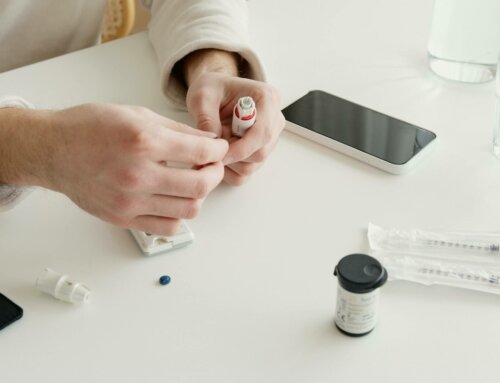The 4th of July – Independence Day – seems a strange date to recognize another year of insulin dependence, but that is the day our now 12 year old was diagnosed with type-1 diabetes on in 2006 and that is the day we uniquely “celebrate,” if you will, another year of his life thanks to insulin.
Each year for the past 6-7 years our family has coordinated with the local fire department to bring a fire truck or EMS vehicle to our subdivision for a July 4 parade, but some three years ago our Brian said he wasn’t feeling well that morning and wasn’t sure he wanted to ride with the other kids in the annual bike outing – for the first time ever. When the trucks arrived and the kids assembled, Brian rallied and took a quick bike-loop around the subdivision with the parade line and then he returned seemingly exhausted and went back to the couch. Mom’s suggestion to take him to the local Urgent Care seemed a little extreme, but given his track record of good health, he obviously was under the weather and in need of evaluation. Although I felt no reason to accompany them for the visit. When mom called me from the Dr.’s office less than an hour later I was dumbstruck to hear of his diagnosis: full-blown type 1 diabetes. Diabetes is a disease I had only limited knowledge of through a former co-worker who had it. I quickly packed an overnight bag for us all and met at the Urgent Care before moving on to our local hospital for a 4-day stay and immersion in type 1 diabetes education and management. Though none of us had ever administered a shot before, less than a day after diagnosis both mom and I were regularly testing Brian’s blood and dosing insulin to regulate it.
It has now been almost three years since type 1 diabetes entered our lives. Over this last 18 months Brian converted to an insulin pump. Brian has probably tested his blood upwards of 10,000 time since being diagnosed and he has absorbed thousands of other shots and needle pokes to go along with it. Maybe his and our life experiences with this disease parallels others dealing with the same, maybe they have been unique in many a way. However, things change for you once the diagnosis is made and things will never, ever be the same for a child and for the families that are touched by type 1 diabetes.
We always think of Brian’s plight in a “good news, bad news” sort of way, and there are two lists that clearly come to mind when thinking of a person who lives a diabetic lifestyle:
THE BAD NEWS
-you go from “carefree” to a restricted lifestyle upon diagnosis
-you can no longer eat anything without checking its contents and without testing your blood sugar first
-you second-guess every physical symptom you experience, wondering if it is related to your condition
-you second-guess your friendships and relationships with others, as you find out first-hand that some will rise to the occasion in supporting your needs and others will (sadly enough) fall by the wayside
-you worry about venturing out alone or being left alone
-you are constantly reminded of the negative end-results of not caring for your diabetes; bad news about the disease surrounds you
THE GOOD NEWS
-you are forced to adhere to a daily regimen of diet and exercise that could very well make you a healthier and longer-lived individual
-you become more humble and compassionate to the challenges of others
-you connect with others dealing with the same disease and form new friendships
-you deal with professionals who are trained in the disease that help make a difference
-you embark in a new life direction dictated by your health
-you have hope that one day there will be a cure
What have we learned in the past three years? Well, we are all responsible for our own life and our own health. However, as parents of a child with type 1 diabetes, you have to become a rock-solid role model; a tireless and informed care giver. We have probably checked out every book on this disease that our library shelf has to offer yet we constantly find some new tip or fact that impacts Brian’s care. We live through our children and we personally impact their health and longevity through our knowledge, attention and life-lessons. At age 12, Brian still has a long, long road ahead and we plan to be there for him and with him for as long as we possibly can – and until this disease is finally defeated. Another thing we’ve learned is that “everybody seems to be dealing with something,” and we are doing the best with the cards that were dealt us, knowing there are much worse things others have to contend with. As they say, life goes on. And we can confirm that it now goes on quite differently.
Onward and upward … and keeping the faith for Brian and so many, many others.












Leave A Comment